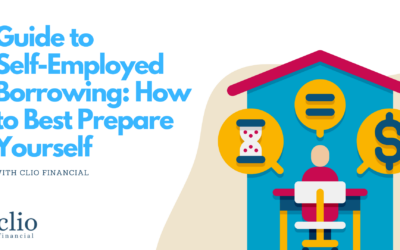In a week of interest rate shifts, over a dozen Australian banks have cut their fixed and variable home loan rates, despite the RBA holding its cash rate. Major players like Bankwest, Ubank, ING, and Macquarie have all announced rate cuts, affecting new customers.
Mozo’s Rachel Wastell suggests the cuts hint at the end of the RBA’s rate hikes. Since May 2022, the cash rate has risen from 0.10% to 4.35%, but economic data—slower growth, reduced spending, rising arrears, and fewer job vacancies—suggest the next move could be a rate cut.
Which Banks Have Made Rate Cuts?
Bankwest has lowered its fixed rates by up to 0.5%, now offering a 5.89% rate on 2- and 3-year fixed-rate loans with loan-to-value ratios (LVR) of 80% or less.
Ubank, meanwhile, has slashed rates on selected fixed-rate loans by as much as 0.73%. Borrowers can now lock in a 5.79% rate for 2, 3, and 5-year fixed terms, provided their LVR is no more than 80%. Ubank also reduced its variable interest rate by up to 0.10%.
ING followed suit with cuts of up to 0.60% on its fixed-rate loans, offering a 5.84% rate on 2, 4, and 5-year terms for borrowers with LVRs below 80%. Additionally, the bank trimmed 0.05% off variable rates for borrowers with LVRs between 80% and 90%.
Macquarie Bank reduced its fixed rates by between 0.10% and 0.66%, providing a 5.69% rate for 2- and 3-year fixed-rate loans with an LVR of 80%.
Other institutions making similar cuts include Bank of Sydney, Gateway Bank, Greater Bank, Heritage Bank, IMB Bank, ME Bank, Newcastle Permanent, People’s Choice, Police Bank, Southern Cross Credit Union, and Teachers Mutual Bank.
More Rate Reductions on the Horizon
Wastell expects more banks to follow suit, particularly with fixed-rate offerings. She pointed out that the big banks have already started responding to the changing market. NAB led the way with fixed-rate cuts in July, with Commonwealth Bank and Westpac making their own reductions in August. ANZ remains the only major bank yet to adjust its fixed rates.
“As the economy cools and the RBA inches closer to reducing rates, we’ll likely see lenders sharpening their offerings to attract borrowers,” Wastell explained.
Fixed Rates – Is it a good idea for you?
When it comes to deciding whether to lock in a fixed rate, Wastell advises caution, describing it as a balancing act. Fixed rates can provide certainty and protect against potential future rate hikes, but if rates fall, borrowers could miss out on savings.
“With rate cuts on the horizon, variable rates might drop below the current fixed-rate offers. In that case, fixing now could leave you paying more in the long run,” she warned.
For those unsure, Wastell suggested splitting a loan between fixed and variable rates, allowing borrowers to benefit from the stability of a fixed rate while still having the option to take advantage of any future variable rate cuts.
When Will the RBA Cut Rates?
Despite speculation, RBA governor Michele Bullock reiterated that discussions of rate cuts remain premature. She emphasized that, as long as the economy progresses as expected, the RBA does not foresee cutting rates in the near term.
Bullock acknowledged the financial stress many households are facing but pointed out that inflation harms everyone, especially vulnerable groups. While Commonwealth Bank expects a rate cut as early as November, other major banks like Westpac, ANZ, and NAB anticipate reductions between February and May 2025.
Bullock highlighted that around 5% of borrowers are facing a “cash flow shortfall,” where their income no longer covers their essential spending and mortgage repayments. This group, she said, may need to make tough choices, including selling their homes.
Sam Giardina – Finance Broker – Clio Financial
PH: 0422 269 868
E: sam@cliofinancial.com.au
W: www.cliofinancial.com.au
Follow our journey – | Instagram | Facebook | LinkedIn | Website |
DISCLAIMER: This article is intended for informational purposes only and does not constitute financial advice. The content is based on current market data and research but may not be applicable to your personal circumstances. Before making any financial decisions or taking action, you should consult with a qualified financial advisor.












![Refinance Your Property [2023 Update]](https://cliofinancial.com.au/wp-content/uploads/2023/08/Aventus-Finance-Services-1-400x250.webp)
0 Comments